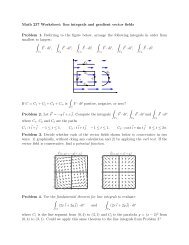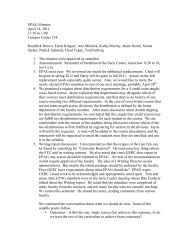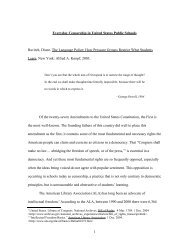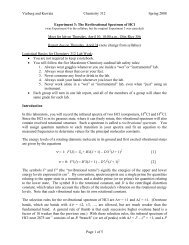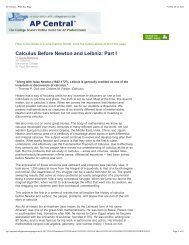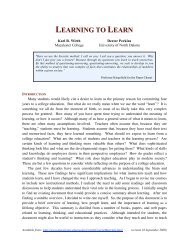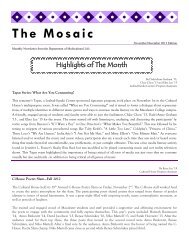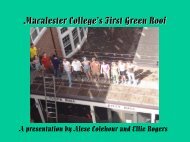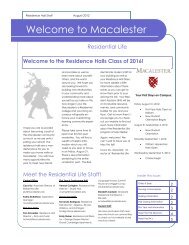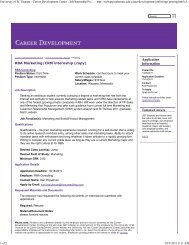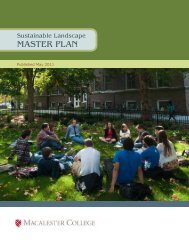Download - Macalester College
Download - Macalester College
Download - Macalester College
Create successful ePaper yourself
Turn your PDF publications into a flip-book with our unique Google optimized e-Paper software.
Grandstand<br />
ESSAY<br />
The Anxious, Empathic Writer<br />
BY ANDY STEINER ’90<br />
LAST SPRING I LAY MY DOCTOR’S EXAM TABLE, hooked up to<br />
an ECG machine. Embarrassed, anxious, even a bit tearful, I rapidly<br />
explained to the kind doctor, and then to the nurse, as she affixed<br />
a handful of sticky probes to my chest, “I’m writing this book and I<br />
interviewed a young woman who had a heart attack. She’s fit, around<br />
my age, a marathoner, but she had a heart attack, and her symptoms<br />
weren’t typical at all. I know it’s probably just heartburn but I keep<br />
thinking I’m having one, too. . . ” My words faded off, uselessly.<br />
I was making a scene, and when my ECG results came back normal,<br />
as in “Take some antacid,” instead of feeling relieved I felt even more<br />
embarrassed. I blew my nose, thanked the doctor for her time, and<br />
slunk out of the clinic, feeling as if I were wearing a scarlet H for<br />
hypochondriac.<br />
Turns out, the experience was all in a day’s work.<br />
For most of the last year I’ve been researching and writing a book<br />
that tells the stories of people who have lived through significant life<br />
challenges, including the loss of a job or home, serious chronic illness,<br />
the death of a child, or (see above) a major heart attack. The people I<br />
interviewed have been open and forthcoming, exhaustively detailing<br />
their traumas, and, most importantly, explaining how they’ve managed<br />
to incorporate these losses into their lives and keep going.<br />
Despite having been a journalist long enough to know better,<br />
I entered this project blithely, convinced everything would be fine,<br />
confident in my ability to play the objective reporter. Yet there were<br />
times in the midst of my research when I felt as if I’d been sucked into<br />
the vortex of my subjects’ situations, witnessing the crushing pain<br />
of the grieving parent or the depressing disorientation of life with a<br />
malfunctioning heart.<br />
Then tragedies in my own life and the lives of my loved ones began<br />
to add to my stress. Within a span of months my beloved father-in-law<br />
and niece both fell ill and died. Thinking about their deaths still makes<br />
me feel hollowed out and sad.<br />
In the muddle of my own grief there were days when working<br />
on the book left me depleted and exhausted. But as I continued to<br />
transcribe interviews and write, a sense of peace began to seep in. My<br />
subjects’ honest accounts of how they imperfectly yet bravely faced<br />
down life-shifting events were both awe-inspiring and comforting.<br />
These were real people who found they could thrive despite major<br />
traumas. If they could do it, then so could I.<br />
Even armed with that knowledge, though, there were times—such<br />
as during my anxious doctor’s visit—when I stumbled in the face of<br />
tough realities. I’m human and fallible, after all. Then, as evidence of<br />
my own fallible life continued to build, as I witnessed some of the<br />
saddest moments I could imagine, I noticed that I’d begun to develop a<br />
different awareness of life’s difficulties. Some of that awareness, I know,<br />
comes from my own experiences; the rest comes from empathetically<br />
witnessing the pain of others.<br />
Sure, life would be easier if we could just sail through it, free of<br />
struggle or sadness. Like most people, that’s the kind of life I once hoped<br />
for. And there’s still a part of me that wishes that life for my daughters.<br />
But lately I’ve come to believe that an unblemished life is incomplete.<br />
I recently came across a quote from Elisabeth Kubler-Ross, author<br />
of On Death and Dying: “The most beautiful people we have known<br />
are those who have known defeat, known suffering, known loss, and<br />
have found their way out of the depths. Beautiful people do not just<br />
happen.” I love that sentiment because it says what I’ve believed for<br />
years: The most compassionate people are those who’ve struggled.<br />
Even the most amazing lives have some ugly edges. Back in college,<br />
I gave the man who is now my husband a copy of The Velveteen Rabbit,<br />
a favorite childhood book in which a once plush stuffed toy becomes<br />
real only after having his whiskers loved off. Life wears us down. It’s<br />
inevitable. But that’s what makes us beautiful—and real.<br />
ANDY STEINER ’90 is a St. Paul–based writer and editor. Her latest book,<br />
How to Survive: The Extraordinary Resilience of Ordinary People, will<br />
be published in 2014 by Think Piece Publishing.<br />
ILLUSTRATION: ERIC HANSON<br />
48 MACALESTER TODAY



